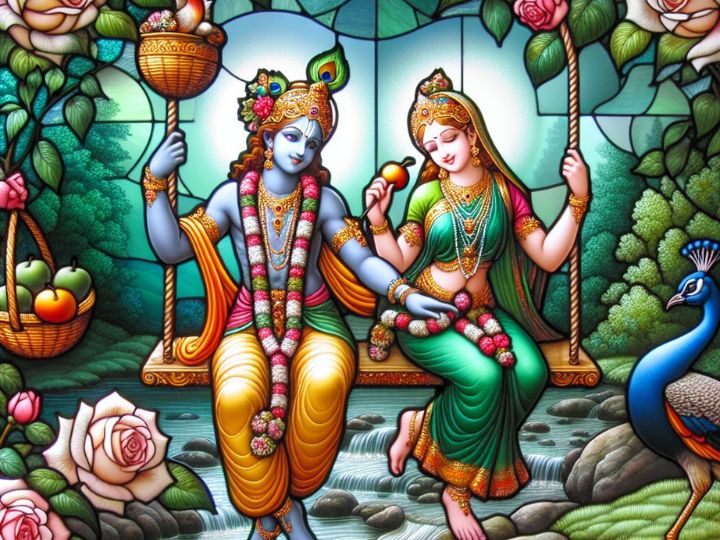
Śrīmad-Bhāgavatam 7.9.11
—
Montreal, August 17, 1968
Now here it is said, yad yaj jano bhagavate vidadhīta mānam. Whatever you are offering to Kṛṣṇa... Practically, we see that we are offering so many nice foodstuffs to Kṛṣṇa, but Kṛṣṇa, apparently it appears that Kṛṣṇa has not eaten. The prasādam is distributed among the devotees. Similarly, whatever is offered to the Supreme Lord, He is not in need of it, but He accepts it. He spiritualizes it, and it is meant for you. You are gainer. Whenever there is some special function to offer some nice foodstuffs to the Lord, you can take the prasādam, so actual gainer you are. But you are gainer in both ways. You taste very nice foodstuffs, at the same time you regain your spiritual consciousness. So yad yaj bhagavat..., yad yaj jano bhagavate vidadhīta mānam. Whatever honor, respect, or presentation is given to the Lord, it is enjoyed by Him. It is enjoyed by Him. So how it is so? Just the same example: just like you decorate your face, but you cannot see directly how your face is beautiful. But when you put your mirror before the face, on the reflection you see very nice decoration. Similarly, if you decorate the Supreme Lord Kṛṣṇa... That is the system of temple worship. Very nicely decorated temple, very nicely decorated Deity, all nice foodstuff offered to the Deity—you will feel enjoyment. The more you do that, you'll feel enjoyment. It is not nonproductive. It is very spiritually productive process. Yad yaj jano vidadhīta. Ayaṁ prabhur īśvara. Īśvara, prabhu means īśvara. Naivātmanaḥ prabhur ayaṁ nija-lābha-pūrṇo. Prabhu means īśvara. Prabhu means master, controller.
If a person is controller, master of a big establishment, so what the laborer can offer him? He is already the proprietor. So here it is said, īśvara aviduṣaḥ akalpād janād mānaṁ pūjām ātmano 'rthe na vṛṇīte. So do not foolishly think that the prescription given in the śāstras that whatever you have got, offered to Kṛṣṇa or offered to God, it is not that God is in want; it is your interest. The more you give to God, the more you become benefited. It is your interest. But the foolish persons, they do not know it. Therefore God, like Bali Mahārāja, He goes, like Vāmanadeva, He goes to beg from Bali Mahārāja. And His representative, devotees of God, sannyāsīs, they also go to beg: "My dear sir, give us some contribution for our temple." It is not that he's beggar. It is for the person's benefit. He's spoiling his life in sense enjoyment, and this representative goes to him and takes some money from that hell-going activity and offers it to the Deity so he'll be saved. Svalpam apy asya dharmasya trāyate mahato bhayāt. Willingly or unwillingly, if you offer something to God, that will be a permanent credit. A permanent credit. Svalpam apy asya dharmasya trāyate mahato bhayāt. Even little done, it can act so nicely that sometimes it can save you from the greatest danger.

